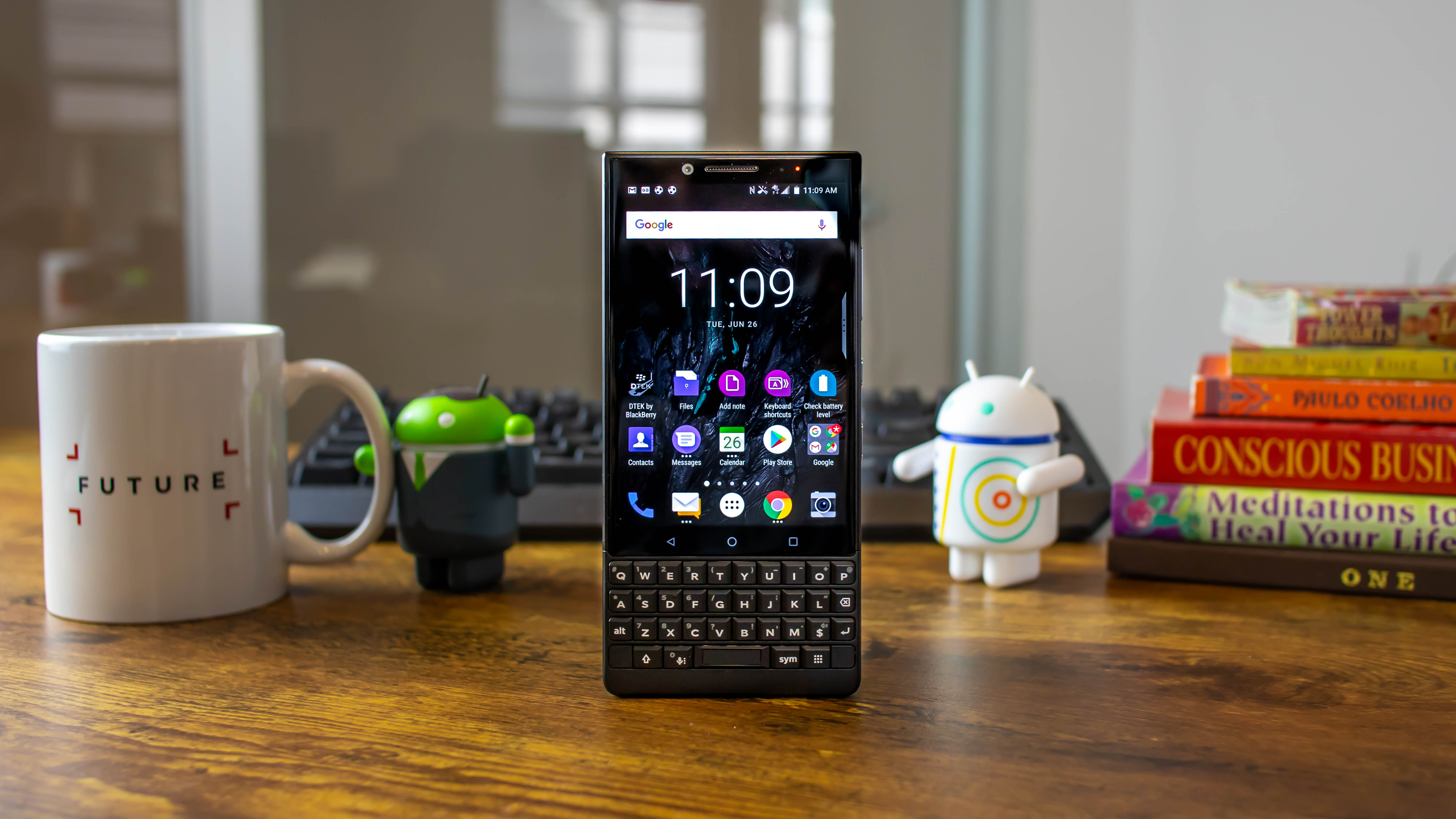TechRadar Verdict
The new BlackBerry Key2 is a phone designed entirely for BlackBerry fans. You won't want this if you're thinking of upgrading from a Galaxy S7 and your muscle memory is trained for on-screen keyboards, but for old BlackBerry fans struggling with make-believe keyboards and autocorrect, there's something charming about a physical keyboard. It's a contender for a niche audience that doesn't care about multimedia or fancy new camera tricks like portrait mode.
Pros
- +
Improved keyboard
- +
Useful Speed Key
- +
Lots of security features
Cons
- -
Worst portrait mode camera yet
- -
3:2 screen aspect ratio is odd
- -
Won't work with all US carriers
Why you can trust TechRadar
The BlackBerry Key2 isn’t the future of smartphones. Instead, it’s a throwback to physical keyboards on phones in a world dominated by the all-screen iPhone X and Samsung Galaxy S9.
It bucks the bezel-less display trend and on-screen, make-believe keyboards in favor of 35 real keys, offering starved ‘Crackberry’ addicts something tactical to exercise their thumbs against.
Durability is another BlackBerry hallmark that returns in the age of delicate, all-glass smartphones. This strengthened aluminum handset with a leather-like soft-touch grip on back is ready for your day, no matter what business you're in.
It’s certainly an improvement over last year’s BlackBerry KeyOne that we found likable, but gave some users troubling reliability issues. Key2 feels sturdier and survived our stress tests.
Update: BlackBerry Key2 is now available in the US and UK. It's on sale through Amazon and Best Buy in the US. We've updated our review to note pricing and carrier compatibility on both regions.
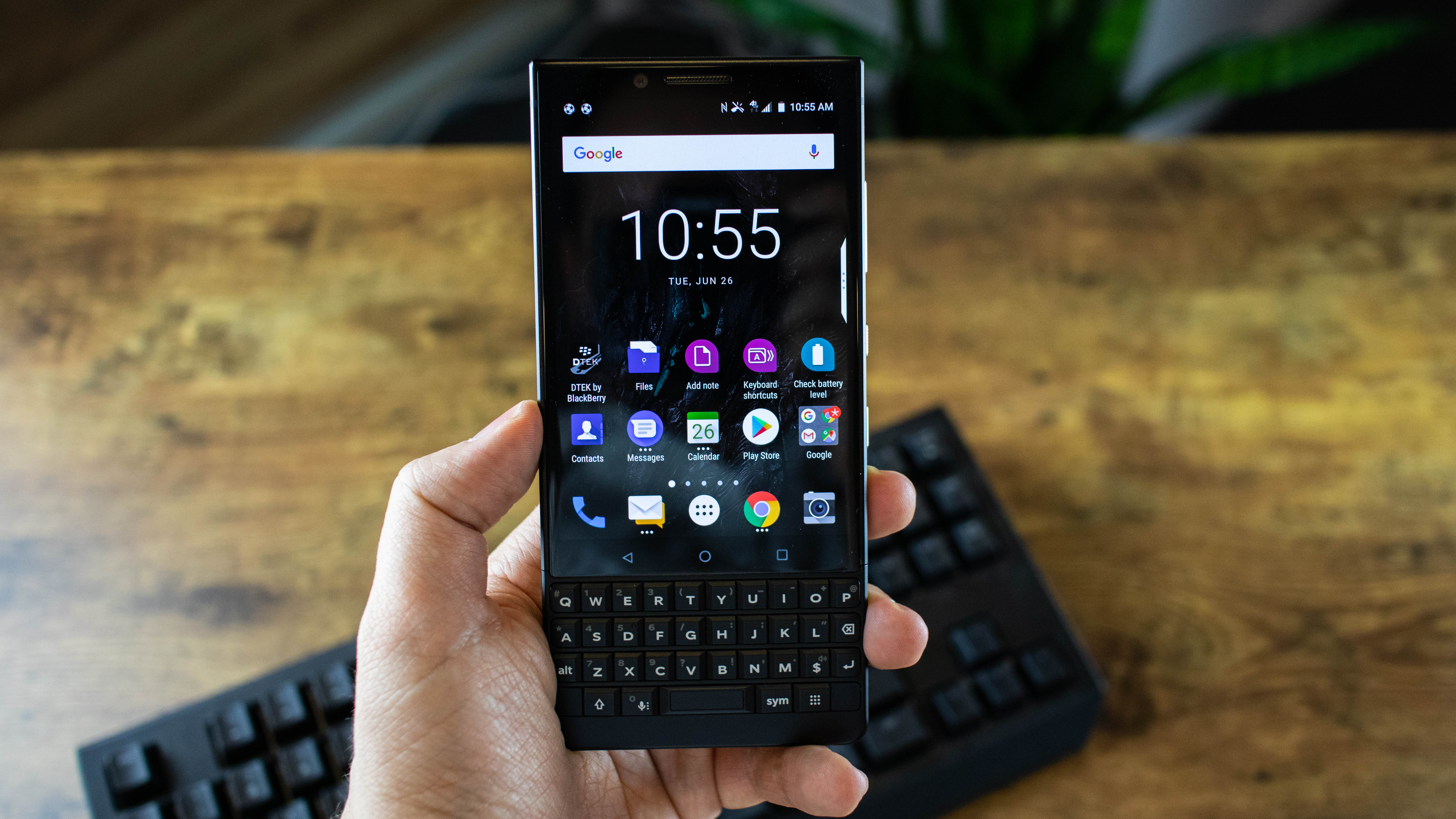
You’re also upgrading to a faster performing chipset (but nowhere near the fastest in the world) and a higher-quality dual-lens camera (though not flawless, as you'll see) on a phone that runs Android 8.1 Oreo and BlackBerry’s smart security and all-encompassing messaging software.
But it all comes back to the physical keys. They’re 20% larger than last year and there’s an all-new Speed Key to trigger 52 customizable actions from any menu. It’s smartphone productivity at its finest.
Sign up for breaking news, reviews, opinion, top tech deals, and more.
BlackBerry Key2 is a standout phone at a time when we’re seeing a lot of notch-led sameness. It does everything differently. Some of it we like. But it does weird things, too, which had us not-so-enthusiastically saying, ‘Ugh, it does everything differently’. Same words, different tone. New camera tricks, video playback, and millennial-loved apps like Instagram aren’t primed for BlackBerry and its misshapen screen with a 3:2 aspect ratio.
You’re going to love the keys on this phone if you can get used to typing on a real keyboard again. You’re going to hate this phone if you can’t adapt (or, if you’re old enough, revert back) to an old-school smartphone keyboard.
Our advice: take your 14-day return policy (or whatever trial your country affords you) seriously on this one. It’s a solid reinvention of a BlackBerry if that’s what you’re looking for in the Android era, and completely different if you’re looking to stand out. But it’s not the future for most people.
Price and release date
BlackBerry Key2 launched on June 29, so it's now available to pre-order in the US and UK, courtesy of TCL, the Chinese smartphone company now behind the BlackBerry brand.

In the US, it costs $649 unlocked at Amazon and Best Buy, and supports GSM carriers like AT&T and T-Mobile. We tried a Verizon SIM card and couldn’t get data, so you’re out of luck if you’re on a CDMA carrier like Verizon or Sprint. TCL may sell a CDMA version in the future, but last year, that version of the handset came at a later date. TCL won't tell us for sure, but we suppose the same is true here.
In the UK, the Key2 costs £579 and is carrier-unlocked at Unlocked Mobiles, BuyItDirect, Mobile Phones Direct, and Clove Technologies. BlackBerry also made the phone available two days early, on June 27, at Selfridges Manchester, Birmingham and Oxford Street London stores.
The business-focused BlackBerry Key2 price is closer to Wall Street than Main Street this time around. Last year, we were paying $549 (£499, AU$729). But the increase – 16% in the UK and 18% in the US – is still cheaper than the iPhone X, Samsung Galaxy S9, and even the ‘more affordable' iPhone 8. You’re going to have to look to the iPhone 7 to find something on BlackBerry Key2’s price level.
Keyboard
The BlackBerry Key2 boasts that old-school thing that so many phone manufacturers have done away with – and we aren’t talking about the 3.5mm headphone jack, although it has that, too.
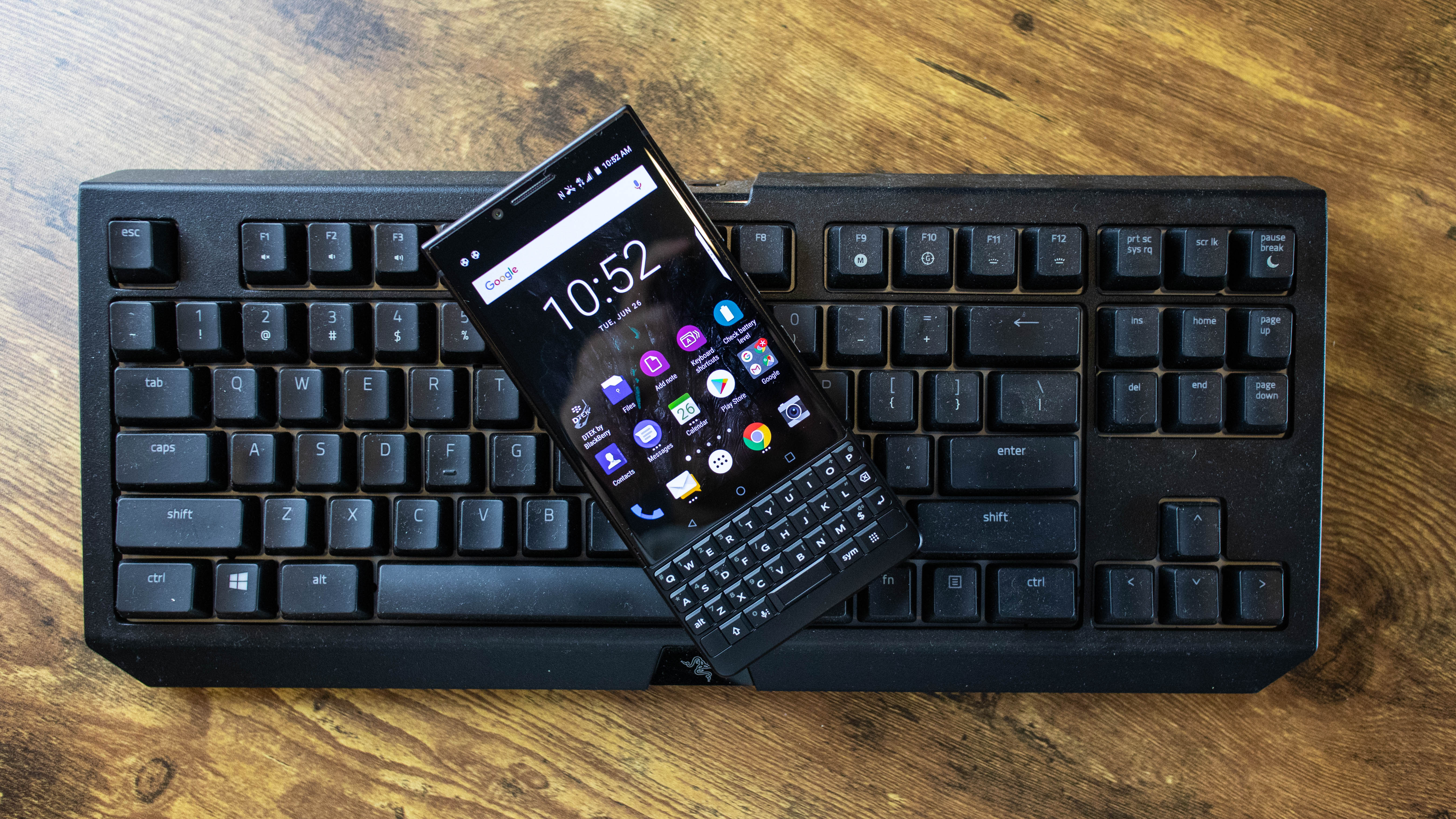
It’s the 35 chiclet-style keys on the lower-third of the Key2 that make it an easy recommendation to anyone who misses the tactile feedback of a real smartphone keyboard. We can report that the keys for one-and-only flagship phone launching with a keyboard in 2018 has been refined, too.
Key height is now 20% larger than the KeyOne, taking over the needless bumpy frets between rows. Compared to an on-screen keyboard, we were slower, but more accurate when taking to the keys and feeling out words. Our out-of-shape thumbs felt the burn, as much as our brain liked the responsiveness of the keys.
What helped make up for our initially slower typing speed and cramped thumbs are the various shortcuts. First, the 52 programmable shortcuts return, this time with a dedicated Speed Key.
The Speed Key is the first new key on a BlackBerry in over a decade, and it lets you assign and launch any shortcut with a quick press of the Speed Key + a letter. There are 26 letters, and long and short combinations double that number to 52. For us, Speed Key + a short press of the I key opened up Instagram. There’s no need to revert back to the homepage to navigate to the app we use everyday (okay, hourly).
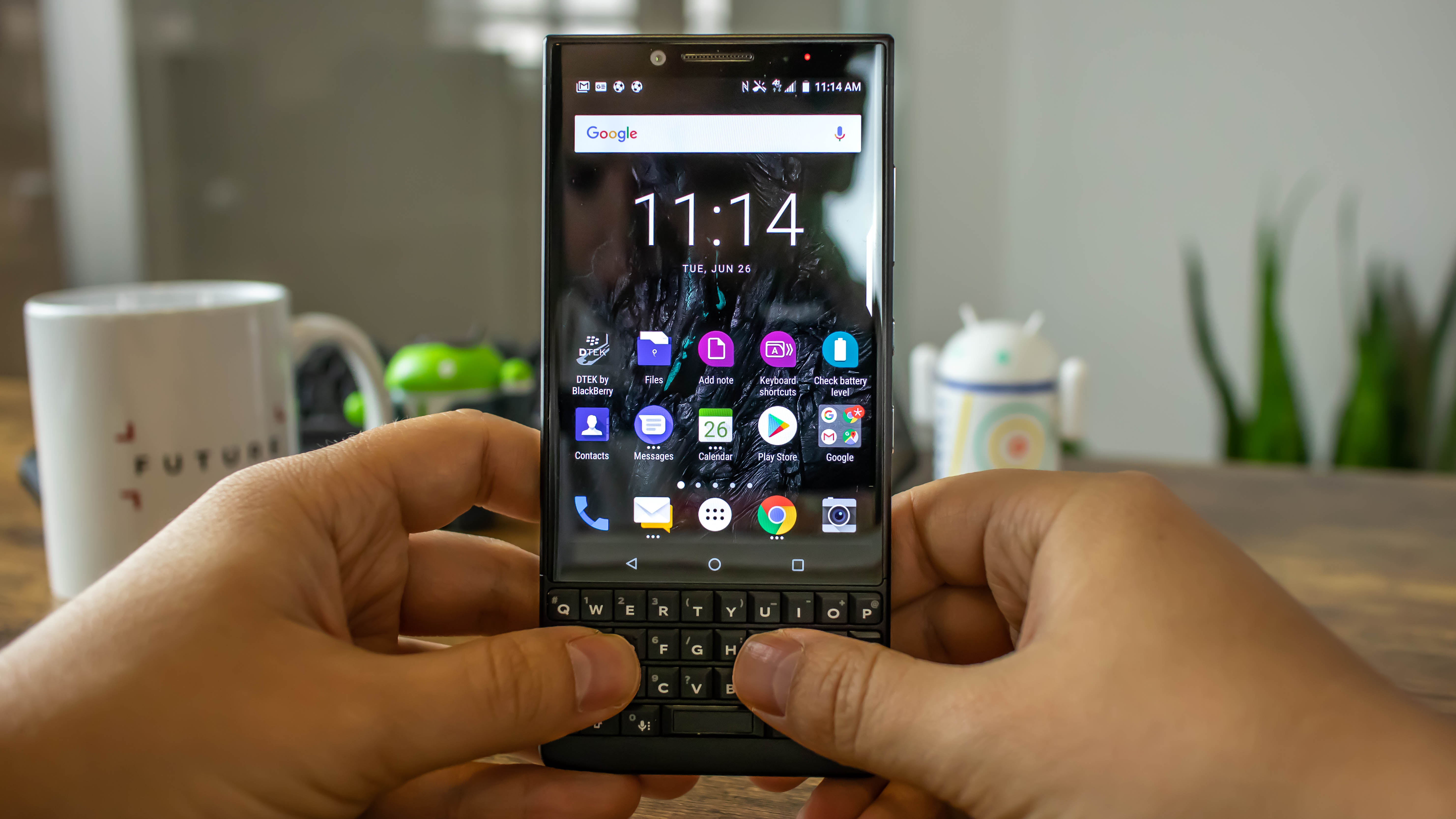
Second, what helped us overcome our slow typing speed was Flick Typing, which uses the row of predictive text above the keyboard with three words lining the bottom of the screen. You can tap one of the suggestions to finish off a word you’re typing, or simply flick your thumb in the direction of the best suggestion and it’ll fly onto the screen where your currently typing. It’s very intuitive.
Third, the entire keyboard acts as a trackpad, letting you easily scroll through menus by lightly petting the keys. The best part is that this means your fingers won’t hog the display. It’s almost as if the Apple Watch scrolling digital crown concept has come to a smartphone.
The BlackBerry team calls all of this its Intelligent Keyboard, and it really is smarter than ever before. The keyboard is why the Key2 is definitely for some people, but not most people, including us and our sore thumbs. At least not long-term in 2018.
Design and screen
The BlackBerry Key2 is a screen-and-keyboard productivity tool designed for the workforce elite, and it looks even more polished than the KeyOne. This time it comes in an all-black color, or a two-tone silver-and-black look from day one. No waiting around for the Black Edition this time around.
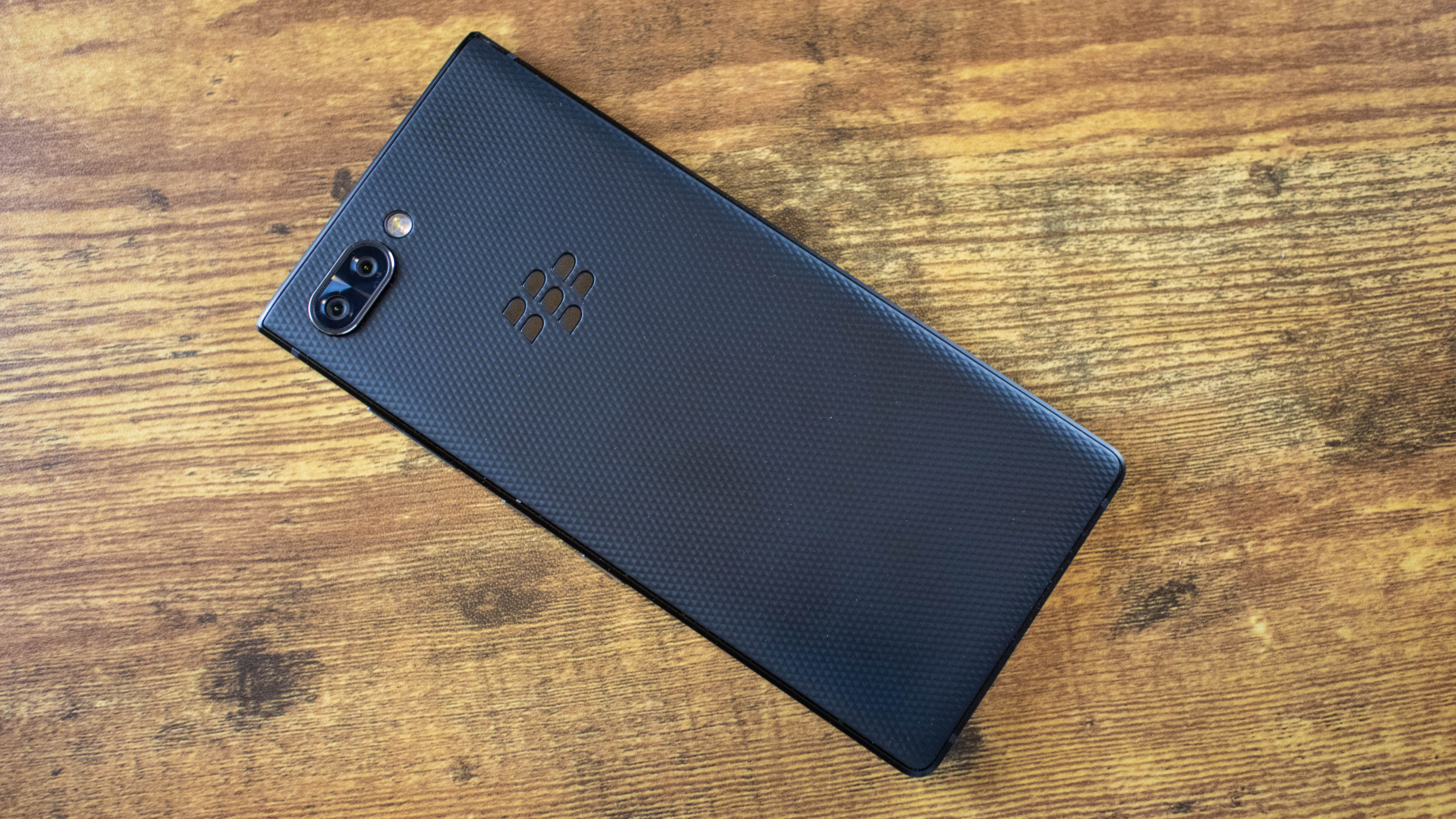
The stronger aluminum frame is the subtle, but important upgrade here. It was too easy to bend and pop out the KeyOne screen – we haven’t had that issue with the Key2 even after some efforted bend attempts (at the end of our review period, for obvious reasons).
The textured soft-grip back helps keep the phone in hand. It’s less slippery than a glass phone, and, if it does drop, it’s able to take a hit much better. Even without that elegant all-glass finish popular on other devices, there continues to be an air of sophistication to the modern BlackBerry design.
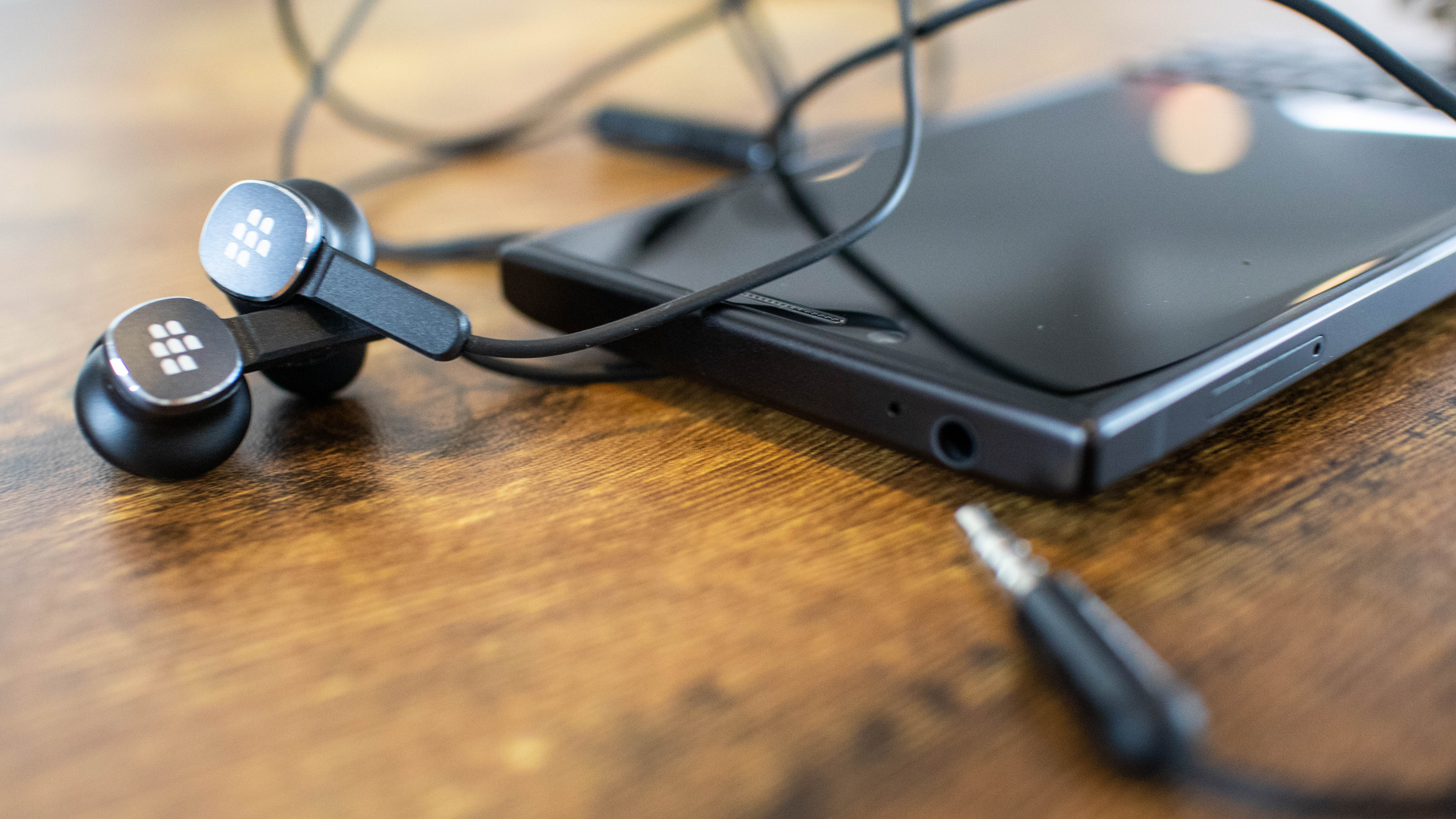
The Key2 blends old and new: there’s a 3.5mm headphone jack, another novelty in 2018, while it also takes a stab at a side-mounted ‘Convenience Key.’ Samsung and LG are trying to add AI with new side buttons for Bixby and Google Assistant, while BlackBerry does the right thing by making the button customizable.
You’re not going to get an upgrade to the returning 4.5-inch LCD screen that’s still beholden to an odd 3:2 aspect ratio. Sure, the 1620 x 1080 resolution looks quite crisp, but 16:9 videos have black bars at the top and bottom with no option to fill the screen. It makes the keyboard-curtailed screen feel extra small.
Worse, the 3:2 screen will rudely cut off all portrait video and photos on Instagram Stories, Snapchat, and other platforms on which people refuse to record in landscape mode. Side-by-side comparisons show you’re actually missing a sizable chunk of content from this screen.

